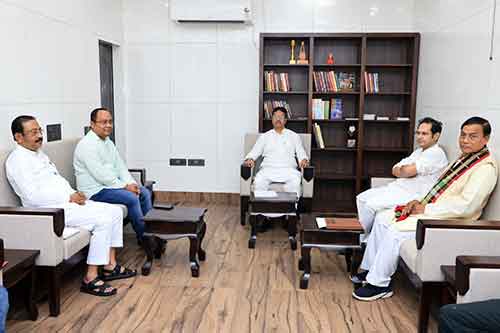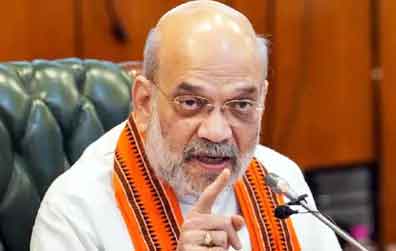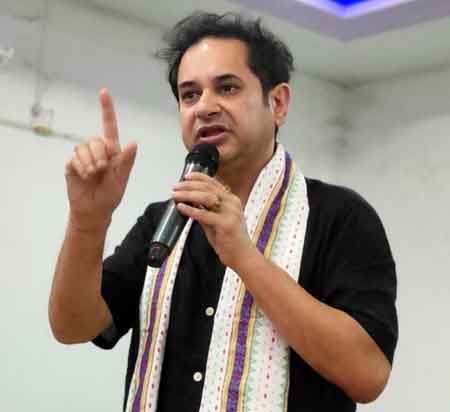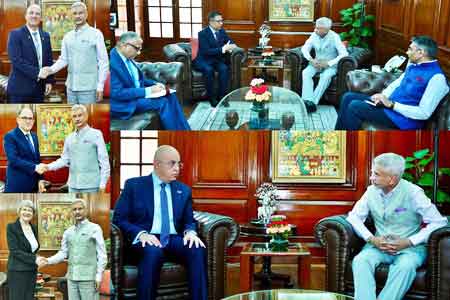The Assam government, at least for the last seven years, has been giving thrust on installing solar power plants across the state.
The government had prepared a solar policy in 2017 to increase the solar power capacity of the state, and it has set a target to generate at least 1,000 MW of electricity in the next three years.
“The state government is trying to make Assam a green energy hub. Assam currently requires 2,200 MW power to provide electricity to all households across the state,” Chief Minister Himanta Biswa Sarma said.
A senior government official told IANS, “The Central government made an ambitious plan of installing solar power plants in the country. The state government has also prepared multiple plans to increase solar energy. It is envisaged under this solar policy to leverage the solar energy potential of Assam for augmenting the installed solar power capacity by deploying resources provisioned under state and Central schemes, policies and programmes.”
“The state government aims to fulfil its commitments under the Sustainable Development Goals (SDGs) by promoting clean, accessible, affordable, and equitable solar energy availability to ensure energy security for its citizens, as well as facilitate the meeting of renewable energy obligations placed by various agencies,” he added.
According to the official, the solar policy aims to promote the grid-connected SPV rooftop power generating plants among the residential, community, institutional, industrial, and commercial establishments.
It will also mitigate the dependence on fossil fuel-based electricity generation and encourage environmental-friendly solar electricity generation.
The state government wants to create an enabling environment for investment in solar energy by the private sector, state government, and individuals.
For this, the rooftop solar power plants will be installed in many districts of the state.
The official maintained that the requirement for fossil fuel in the state will come down in the coming years.
Meanwhile, the Assam government has also planned to set up floating solar power plants in several wetlands in the state.
Another government official said, “This floating solar platform is an innovative way to harness abundant solar rays falling on water bodies and to conserve precious water. It refers to the deployment of photovoltaic panels on the surface of water bodies.”
The official mentioned that the advantages of the floating solar power plant are that they don't require any land space and are installed on water bodies. The land can be used for other purposes, such as farming or construction.
“The water bodies exert a cooling effect, which improves the performance of solar photovoltaic panels by 5-10 per cent. A floating solar power plant is capable of providing electricity to several households located near the pond,” the official added.
Northeast India’s first floating solar power plant of 10.50 kW capacity was successfully installed by Bhurbandha Gaon Panchayat on a pond in Thanagarha village in Assam’s Morigaon district. It was built in association with Assam Energy Development Agency (AEDA) and a Kolkata-based company.
Meanwhile, the biggest solar power plant of this region came up in Amguri town in Assam’s Sivasagar district. The plant is capable of generating at least 70 MW of electricity.








Tripura CM Saha holds key meeting with BJP, IPFT and TMP leaders
Tripura Chief Minister Manik Saha on Friday held an "important" meeting between the leaders of ruling BJP and its two allies – Tipra Motha Party (TMP) and Indigenous People's Front of Tripura (IPFT) and discussed various political and developmental issue, sources said.
HM Amit Shah's meeting sends a clear message: Not a drop of water to Pakistan
A high-level meeting was held on Friday at the residence of Union Home Minister Amit Shah regarding the suspension of the Indus Waters Treaty. The 45-minute meeting between the Home Minister and Union Jal Shakti Minister C.R. Patil focused on exploring ways to halt the flow of water to Pakistan.
Tripura: TMP chief urges Centre to adopt 'stronger policy' against B'desh
Ruling BJP’s ally Tipra Motha Party (TMP) founder-chief Pradyot Bikram Manikya Debbarma on Friday urged the Central government to adopt a stronger policy stance towards Bangladesh, accusing the neighbouring country of encouraging fundamentalist forces targeting Hindu minorities.
Pahalgam attack: More countries express solidarity with India, offer support in fight against terrorism
Ambassadors of Israel, Egypt, Argentina, and Nepal met External Affairs Minister (EAM) S. Jaishankar in New Delhi on Friday, expressing solidarity with India in its fight against terrorism following the heinous terror attack in Pahalgam.
Tripura CM directs SPs and DMs to remain vigilant about Pakistani nationals
Tripura Chief Minister Manik Saha on Friday directed the Superintendents of Police (SPs) of all eight districts to regularly share necessary inputs with the Chief Minister’s Secretariat regarding the presence of any Pakistani nationals in the state, officials said.
US supports India's 'hunt' for those behind 'horrific Islamist terrorist attack' in Pahalgam, says Gabbard
Tulsi Gabbard, Director of National Intelligence (DNI), on Friday said that the United States supports India's "hunt" for the perpetrators of the "horrific Islamist terrorist attack" in Pahalgam that took place earlier this week.
Tehran stands ready to 'forge greater understanding' between India and Pakistan: Iran FM Araghchi
Citing its good relations with both India and Pakistan, Iran on Friday said that it stands ready to "forge greater understanding" between New Delhi and Islamabad following the Pahalgam terror attack, earlier this week.
PM Modi's action will act as deterrent against any fresh attempts to harm India: Tripura CM
Tripura Chief Minister Manik Saha on Friday denounced the Pahalgam terror attack, asserting his staunch belief that Prime Minister Narendra Modi's decisive action will act as a strong deterrent against any future attempts by terrorists to harm India.